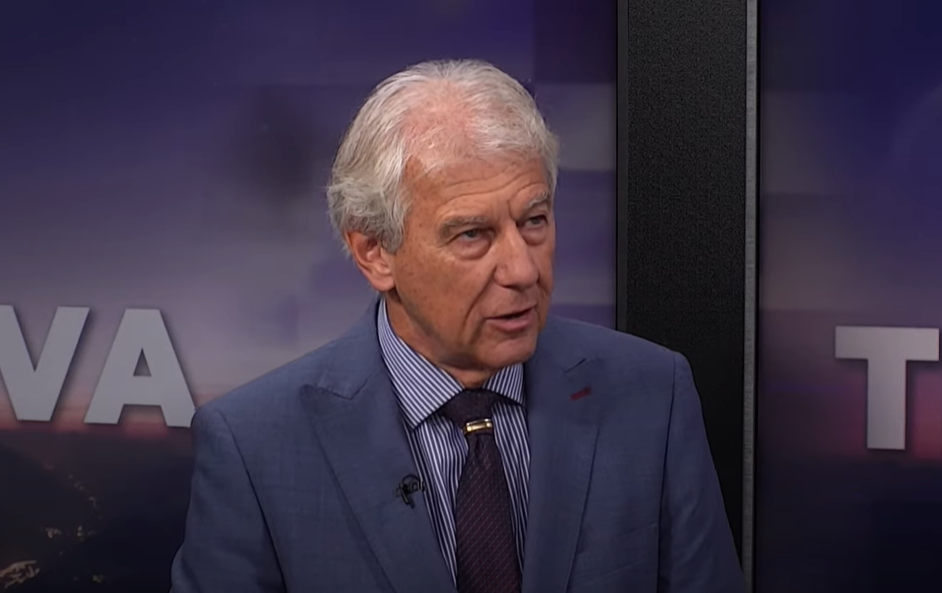“If we carry out the rehabilitation with additional debts, borrowing, that means, on the other hand, that we appear as a debtor with a higher existing debt, regardless of the reason for the increase in debt,” said the President of the Fiscal Council, Davorin Kračun, adding that any additional burden is also a burden on the economy. He believes that additional taxation should be at the bottom of the list of aid measures the government is taking to tackle rehabilitation after the flooding. He believes that the criteria for the distribution of public money should be very clear, so that money is not misused or channelled to where it is not needed.
A natural disaster on the scale of the August floods is also an exceptional macroeconomic and fiscal shock, the Fiscal Council of the Republic of Slovenia said in its published assessment. The Council is concerned that too much of the funds will be used for reconstruction, which will take several years, and that the funds will be spent in a non-transparent and irrational manner. The host of a TV show where the President of the Fiscal Council, Davorin Kračun, was recently a guest also asked him about his opinion on additional taxation of banks as an additional measure to help after the floods.
In an interview, Kračun pointed to the “possibilities of reducing the moral hazard”, explaining that Slovenia will be dealing with a large amount of state money in the post-flood recovery, which will be distributed according to certain criteria, and that these criteria need to be very clear and well defined “to ensure that those who are truly eligible are taken into account”, Kračun says in his introduction. He explained that in the case of large projects, this is not always the case. He also explained that, especially at the moment, we are dealing with “a strong sentiment from the people, as well as solidarity, which makes it all the more important that the state sets firm rules so that there is no abuse, no channelling of funds where they are not absolutely necessary.”
Kračun: the government has been too hasty with the solidarity contribution
The Fiscal Council believes that the decisions on additional tax burdens are premature. Kračun explained that the scale of the damage is large but that the rule is that “when we are dealing with a natural disaster, we have to be all the more careful with public finances so that a financial disaster does not follow.” He believes that the State should be very careful not to worsen the financial situation of the country. “If we carry out the rehabilitation with additional debts, borrowing, that means, on the other hand, that we appear as a debtor with a higher existing debt, regardless of the reason for the increase in debt,” he said, adding that “any burden on the economy is a burden that causes problems for entrepreneurs or individuals, so these are the measures that should come last, everything available for this purpose must be used first.” Kračun also mentioned earmarked funds, European funds and the reallocation and rebalancing of public spending items “to make sure that there is nothing else there that could be used.” He added that the first step, however, is to get a realistic assessment of the flood damage.
Kračun: revenues and economic activity are stagnating
In its semi-annual publication on fiscal and macroeconomic developments, the Fiscal Council warned of a widening of the general government deficit. The Fiscal Council projected a larger fiscal deficit this year than last year, but Kračun believes that such a high projected deficit “is unlikely to materialise or there is no rational reason for it”. The Fiscal Council has consistently warned of inaccurate planning and the fact that “with such high public spending, without any legal obligations behind it, room for manoeuvre is created for a structural deterioration of public finances, which can be detrimental later on.” In addition to talking about the size of the budget deficit, Kračun also gave the assessment that the said deficit was unrealistically high, explaining that this meant that “the individual components of spending are not so well founded that it can be said to be reasonable to foresee such a deficit.” After the first quarter, revenues are stagnating, “the effect of inflation on revenues has started to diminish and economic activity has been rather stagnant since the middle of the year.”
“Slovenia’s public debt is just over 70 percent of GDP, which is above the agreed criterion of 60 percent and below the European Union average,” said Kračun, who explained that Slovenia is slightly below the European Union average on the general government deficit criterion. The extent to which a country can rely on a solid public finance position also depends on the perception of financial markets, and Slovenia, as a small country, is seen as riskier by financial markets, explained the President of the Fiscal Council, who also argued that Slovenia also needs to improve these formal indicators in order to be competitive and to be better placed on financial markets.
Kračun believes that although the government reacted quickly, this was too hasty. He also said that the government has found “popular approval and also political consensus in this segment of the measures concerning direct flood rehabilitation, which is good.”
Tanja Brkić


